TR
-
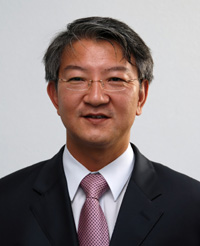 KAIST, GS Caltex Jointly Develop New Bacteria to Produce Biobutanol
KAIST and GS Caltex, Korea"s second-largest refiner, have jointly developed a new strain of bacteria to produce biobutanol, which is regarded as a promising next-generation biofuel, KAIST authorities said on Monday (June 2).
A research team led by Prof. Sang-Yup Lee of the Chemical and Biomolecular Engineering Department and researchers of GS Caltex succeeded in developing an improved strain of bacteria which enables to produce a large amount of biobutanol in the process of fermenting biomass. The research team has applied for international patent for the new technology.
Biomass refers to living and recently dead biological material that can be used as fuel or for industrial production. It usually refers to plant matter grown for use as biofuel, but it also includes plant or animal matter used for production of fibers, chemicals or heat.
In the 1970s and 1980s when scientists began researching the possibilities of alternative fuels, bacteria were used in the process of fermenting biomass. This ABE (acetone, butanol, ethanol) fermentation process yields butanol, acetone, and ethanol in a ratio of 6:3:1, respectively. Acetone produced in this process is not usable.
The newly developed technology to produce biobutanol has an advantage of lowering production cost by eliminating the process to separate acetone from butanol. This has been made possible by improving the bacteria used for the fermentation in metabolic engineering terms, and producing butanol and ethanol only in a ratio of 6:1, while curbing the generation of acetone.
In comparison with bioethanol, also a biofuel mixture which is currently under widespread use in some countries, butanol is more easily transported with gasoline and diesel through pipelines because of its lower tendency to separate from the fuel when contaminated with water. Butanol is also less corrosive than ethanol, another reason its transport through pipeline is preferable.
Global interest in full utilization of biomass and development of other alternative energy including biobutanol has deepened in recent years, as crude oil prices have skyrocketed to record levels and climate changes resulting from the excessive use of fossil fuel have been causing various problems around the world.
2008.06.04 View 13640
KAIST, GS Caltex Jointly Develop New Bacteria to Produce Biobutanol
KAIST and GS Caltex, Korea"s second-largest refiner, have jointly developed a new strain of bacteria to produce biobutanol, which is regarded as a promising next-generation biofuel, KAIST authorities said on Monday (June 2).
A research team led by Prof. Sang-Yup Lee of the Chemical and Biomolecular Engineering Department and researchers of GS Caltex succeeded in developing an improved strain of bacteria which enables to produce a large amount of biobutanol in the process of fermenting biomass. The research team has applied for international patent for the new technology.
Biomass refers to living and recently dead biological material that can be used as fuel or for industrial production. It usually refers to plant matter grown for use as biofuel, but it also includes plant or animal matter used for production of fibers, chemicals or heat.
In the 1970s and 1980s when scientists began researching the possibilities of alternative fuels, bacteria were used in the process of fermenting biomass. This ABE (acetone, butanol, ethanol) fermentation process yields butanol, acetone, and ethanol in a ratio of 6:3:1, respectively. Acetone produced in this process is not usable.
The newly developed technology to produce biobutanol has an advantage of lowering production cost by eliminating the process to separate acetone from butanol. This has been made possible by improving the bacteria used for the fermentation in metabolic engineering terms, and producing butanol and ethanol only in a ratio of 6:1, while curbing the generation of acetone.
In comparison with bioethanol, also a biofuel mixture which is currently under widespread use in some countries, butanol is more easily transported with gasoline and diesel through pipelines because of its lower tendency to separate from the fuel when contaminated with water. Butanol is also less corrosive than ethanol, another reason its transport through pipeline is preferable.
Global interest in full utilization of biomass and development of other alternative energy including biobutanol has deepened in recent years, as crude oil prices have skyrocketed to record levels and climate changes resulting from the excessive use of fossil fuel have been causing various problems around the world.
2008.06.04 View 13640 -
 KAIST, ICU Agree to Merge
KAIST and the Information and Communications University, a state-run institution, decided to merge as they signed a memorandum of understanding for unification at the Westin Chosun Hotel in Seoul on May 23.
The MOU signing ceremony was attended by representatives of the two universities and related high-ranking government officials from the Ministry of Knowledge Economy and the Ministry of Education, Science and Technology.
Under the agreement, the two universities will form a joint committee to complete the merger process by the end of this year. According to the MOU, ICU will become the "IT Convergence Campus" (ICC) which will include KAIST"s IT related departments and research institutes. The projected ICC will be headed by a KAIST vice president, KAIST authorities said.
With the merger, the number of KAIST students in the IT area will increase to 2,850 from 1,951, while the number of IT-related faculty members will rise to 157 from 99.
ICU was established in 1997 by the Korean Ministry of Information and Communication, the Electronics and Telecommunications Research Institute, and some major Korean IT companies. Located in Daedeok Science Town in Daejeon where KAIST is also situated, ICU started as a graduate school and added the undergraduate course in 2002. It currently has a total enrollment of 1,121 students -- 481undergraduate students, 324 graduate students and 316 doctorate students.
KAIST said that it will treat ICU professors and staff equally after the merger. This year, the two universities will separately conduct freshmen recruitment procedures for 2009, but will then unify recruitment.
The unification of the two institutions is expected to give KAIST the competitive edge through a larger faculty, student body, and expanded facilities.
The agreement put an end to extended negotiations for merger which started in July 2006. The talk of merging the two universities surfaced when the Board of Audit and Inspection concluded that the government"s direct financial support for ICU was unlawful as ICU was established as a private school. When ICU was established in 1997, the Ministry of Information and Communication provided 200 billion won as the basic endowment and has continually provided 10 billion won in operating funds each year.
2008.05.22 View 15448
KAIST, ICU Agree to Merge
KAIST and the Information and Communications University, a state-run institution, decided to merge as they signed a memorandum of understanding for unification at the Westin Chosun Hotel in Seoul on May 23.
The MOU signing ceremony was attended by representatives of the two universities and related high-ranking government officials from the Ministry of Knowledge Economy and the Ministry of Education, Science and Technology.
Under the agreement, the two universities will form a joint committee to complete the merger process by the end of this year. According to the MOU, ICU will become the "IT Convergence Campus" (ICC) which will include KAIST"s IT related departments and research institutes. The projected ICC will be headed by a KAIST vice president, KAIST authorities said.
With the merger, the number of KAIST students in the IT area will increase to 2,850 from 1,951, while the number of IT-related faculty members will rise to 157 from 99.
ICU was established in 1997 by the Korean Ministry of Information and Communication, the Electronics and Telecommunications Research Institute, and some major Korean IT companies. Located in Daedeok Science Town in Daejeon where KAIST is also situated, ICU started as a graduate school and added the undergraduate course in 2002. It currently has a total enrollment of 1,121 students -- 481undergraduate students, 324 graduate students and 316 doctorate students.
KAIST said that it will treat ICU professors and staff equally after the merger. This year, the two universities will separately conduct freshmen recruitment procedures for 2009, but will then unify recruitment.
The unification of the two institutions is expected to give KAIST the competitive edge through a larger faculty, student body, and expanded facilities.
The agreement put an end to extended negotiations for merger which started in July 2006. The talk of merging the two universities surfaced when the Board of Audit and Inspection concluded that the government"s direct financial support for ICU was unlawful as ICU was established as a private school. When ICU was established in 1997, the Ministry of Information and Communication provided 200 billion won as the basic endowment and has continually provided 10 billion won in operating funds each year.
2008.05.22 View 15448 -
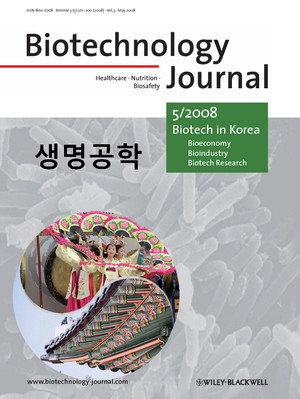 International Science Journal Spotlights Korean Biotechnology
Biotechnology Journal published by German-based Wiley-VCH, one of the world"s major scientific and technical publishers, devoted its entire special edition for May to biotechnology in Korea.
The monthly journal"s special issue was planned by KAIST Professor Sang-Yup Lee of the Chemical and Biomolecular Engineering Department who is one of the journal"s two editors-in-chief.
The special issue outlines the current status and future prospect of biotechnology in Korea, and presents five review papers and eight original papers by leading Korean biotech researchers to showcase recent developments in Korean biotechnology. Among these papers, a review by Dr. Byung-Hwan Hyeon and his colleagues describes in detail the Korean biotechnology strategies represented by "Bio-Vision 2016," and another by Dr. Ji-Hyun Kim and his collaborators presents recent progress in microbial genome projects in Korea.
In the editorial of the journal, Prof. Lee said, "Heavy industry and IT industry have been the two drivers of Korean economic growth. Korea is now considering biotechnology as its next generation growth engine."
Underscoring the growing importance of fusion research, he mentioned that integration of biotechnology with information technology and nanotechnology is advancing rapidly in Korea. Another special edition of Biotechnology Journal focusing on these exciting biotech developments in Korea is planned for the future.
2008.05.20 View 15432
International Science Journal Spotlights Korean Biotechnology
Biotechnology Journal published by German-based Wiley-VCH, one of the world"s major scientific and technical publishers, devoted its entire special edition for May to biotechnology in Korea.
The monthly journal"s special issue was planned by KAIST Professor Sang-Yup Lee of the Chemical and Biomolecular Engineering Department who is one of the journal"s two editors-in-chief.
The special issue outlines the current status and future prospect of biotechnology in Korea, and presents five review papers and eight original papers by leading Korean biotech researchers to showcase recent developments in Korean biotechnology. Among these papers, a review by Dr. Byung-Hwan Hyeon and his colleagues describes in detail the Korean biotechnology strategies represented by "Bio-Vision 2016," and another by Dr. Ji-Hyun Kim and his collaborators presents recent progress in microbial genome projects in Korea.
In the editorial of the journal, Prof. Lee said, "Heavy industry and IT industry have been the two drivers of Korean economic growth. Korea is now considering biotechnology as its next generation growth engine."
Underscoring the growing importance of fusion research, he mentioned that integration of biotechnology with information technology and nanotechnology is advancing rapidly in Korea. Another special edition of Biotechnology Journal focusing on these exciting biotech developments in Korea is planned for the future.
2008.05.20 View 15432 -
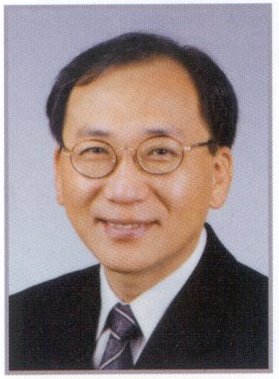 World Micromachine Summit to Open in Daejeon
The 2008 World Micromachine Summit will be held at Hotel Riviera in Daejeon for a four-day run from April 30, drawing worldwide industrial and academic leaders in the micro-nano-technology (MNT).
Organizers say that 76 delegates and 56 observers from 19 countries and regions will take part in this year"s Micromachine Summit. Prof. Cho Young-ho of the Department of Bio & Brain Engineering of KAIST will play host to the annual event.
Participants will discuss the progress of micro-nano-technology in each country and region development of national policies in this area. The Summit was first organized in 1995 by the Micromachine Center of Japan with representatives from 10 countries participating. They were Australia, Canada, Germany, Italy, Japan, the Netherlands, Switzerland, the United Kingdom, and the United States.
Korea was first invited to the conference in 1999. Since then, Korea has played an active role in promoting technological exchanges among nations and has conducted presentations and discussions on major technological breakthroughs.
During the four-day run, each delegation will outline their country"s policies and strategies and present local features on focused areas including this year"s main theme, "Micromachine towards Technology Convergence Era."
The gathering will offer a valuable opportunity for the participants to exchange and collect information on the current state of the MNT, as well as providing a forum for worldwide networking of leaders in the area.
2008.04.29 View 14386
World Micromachine Summit to Open in Daejeon
The 2008 World Micromachine Summit will be held at Hotel Riviera in Daejeon for a four-day run from April 30, drawing worldwide industrial and academic leaders in the micro-nano-technology (MNT).
Organizers say that 76 delegates and 56 observers from 19 countries and regions will take part in this year"s Micromachine Summit. Prof. Cho Young-ho of the Department of Bio & Brain Engineering of KAIST will play host to the annual event.
Participants will discuss the progress of micro-nano-technology in each country and region development of national policies in this area. The Summit was first organized in 1995 by the Micromachine Center of Japan with representatives from 10 countries participating. They were Australia, Canada, Germany, Italy, Japan, the Netherlands, Switzerland, the United Kingdom, and the United States.
Korea was first invited to the conference in 1999. Since then, Korea has played an active role in promoting technological exchanges among nations and has conducted presentations and discussions on major technological breakthroughs.
During the four-day run, each delegation will outline their country"s policies and strategies and present local features on focused areas including this year"s main theme, "Micromachine towards Technology Convergence Era."
The gathering will offer a valuable opportunity for the participants to exchange and collect information on the current state of the MNT, as well as providing a forum for worldwide networking of leaders in the area.
2008.04.29 View 14386 -
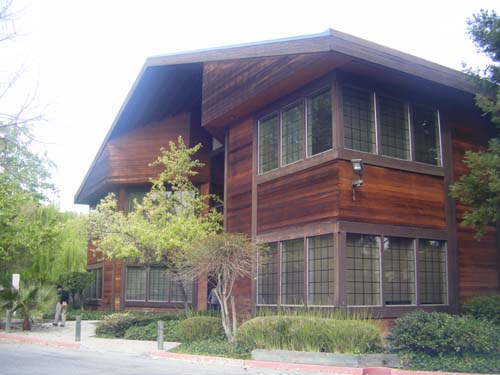 KAIST to Open Liaison Office in Silicon Valley
KAIST will open a liaison office in Silicon Valley, California, within the first half of this year to serve as a beachhead of its operations in the United States, university authorities announced Monday.
The opening of "KAIST America" office will be financially supported by the Silicon Valley-based Ambex Venture Group. The liaison office will be located at the first floor of the AmBex building in Sunnyvale.
The liaison office will be responsible for overseeing joint research between KAIST and the U.S. National Aeronautics and Space Administration (NASA) and KAIST"s other cooperative projects in research and development with enterprises and universities in Silicon Valley. It will also be engaged in forming a network among KAIST alumni members in the United States, raising funds within the U.S. and managing the money. The office will arrange KAIST students" internship in the companies in Silicon Valley.
"KAIST America is part of the globalization strategies that KAIST has pursued consistently. It is aimed at helping set up venture firms based on the technologies that KAIST has developed so far and generating funds needed for further development of the university," said Sun-Heung Jang, KAIST vice president.
AmBex, a venture capital company that invests in information technology, health science and financial service firms, was founded by Jong-Moon Lee, a member of Presidents" Advisory Council at KAIST. The AmBex building is situated near Stanford University, University of California in Berkeley, Google and Yahoo.
KAIST President Nam Pyo Suh will invite Stanford and UC Berkeley professors, executives of Silicon Valley enterprises and KAIST alumni in the area to the opening ceremony of the liaison office to be held some time in the first half of this year.
2008.03.25 View 14069
KAIST to Open Liaison Office in Silicon Valley
KAIST will open a liaison office in Silicon Valley, California, within the first half of this year to serve as a beachhead of its operations in the United States, university authorities announced Monday.
The opening of "KAIST America" office will be financially supported by the Silicon Valley-based Ambex Venture Group. The liaison office will be located at the first floor of the AmBex building in Sunnyvale.
The liaison office will be responsible for overseeing joint research between KAIST and the U.S. National Aeronautics and Space Administration (NASA) and KAIST"s other cooperative projects in research and development with enterprises and universities in Silicon Valley. It will also be engaged in forming a network among KAIST alumni members in the United States, raising funds within the U.S. and managing the money. The office will arrange KAIST students" internship in the companies in Silicon Valley.
"KAIST America is part of the globalization strategies that KAIST has pursued consistently. It is aimed at helping set up venture firms based on the technologies that KAIST has developed so far and generating funds needed for further development of the university," said Sun-Heung Jang, KAIST vice president.
AmBex, a venture capital company that invests in information technology, health science and financial service firms, was founded by Jong-Moon Lee, a member of Presidents" Advisory Council at KAIST. The AmBex building is situated near Stanford University, University of California in Berkeley, Google and Yahoo.
KAIST President Nam Pyo Suh will invite Stanford and UC Berkeley professors, executives of Silicon Valley enterprises and KAIST alumni in the area to the opening ceremony of the liaison office to be held some time in the first half of this year.
2008.03.25 View 14069 -
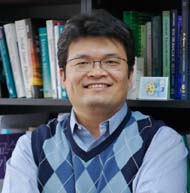 Prof. Kim Receives Lee Osheroff Prize
Professor Eun-Seong Kim of the Department of Physics has been selected as the winner of the Lee Osheroff Richardson Prize for 2008.
The award was established in honor of the 1996 Nobel Prize laureates in Physics David Lee, Douglas Osheroff, and Robert Richardson for their discovery in superfluidity in helium-3. The annual prize sponsored by Oxford Instruments NanoScience is awarded to a young scientist who has made a notable achievement in the field of low temperatures and high magnetic fields.
Kim was chosen as the winner of this prestigious award for his contributions to the understanding of solid helium. Through research, Professor Kim found superfluid-like behavior in solid helium and with this discovery it is shown that all three states of matter can exhibit superfluid behavior.
The Lee Osheroff Richardson Prize recipient is selected by the North American Prize Committee which is composed of prominent figures in the low temperature and high magnetic fields including Professor Bruce Gaulin of McMaster University, who chairs the Prize Committee. The award ceremony was held on March 11 in New Orleans.
2008.03.18 View 14747
Prof. Kim Receives Lee Osheroff Prize
Professor Eun-Seong Kim of the Department of Physics has been selected as the winner of the Lee Osheroff Richardson Prize for 2008.
The award was established in honor of the 1996 Nobel Prize laureates in Physics David Lee, Douglas Osheroff, and Robert Richardson for their discovery in superfluidity in helium-3. The annual prize sponsored by Oxford Instruments NanoScience is awarded to a young scientist who has made a notable achievement in the field of low temperatures and high magnetic fields.
Kim was chosen as the winner of this prestigious award for his contributions to the understanding of solid helium. Through research, Professor Kim found superfluid-like behavior in solid helium and with this discovery it is shown that all three states of matter can exhibit superfluid behavior.
The Lee Osheroff Richardson Prize recipient is selected by the North American Prize Committee which is composed of prominent figures in the low temperature and high magnetic fields including Professor Bruce Gaulin of McMaster University, who chairs the Prize Committee. The award ceremony was held on March 11 in New Orleans.
2008.03.18 View 14747 -
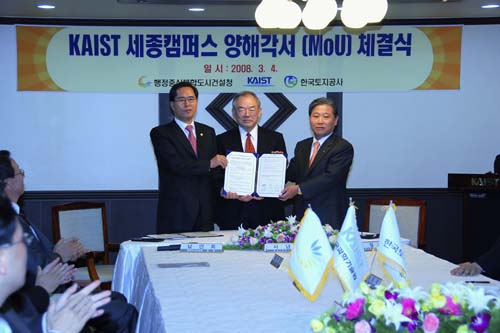 KAIST to Build Branch Campus in New Administrative City
KAIST signed a memorandum of understanding (MOU) with the Multifunctional Administrative City Construction Agency and the Korea Land Corporation on March 4 to build a branch campus in the city now under construction to house many government organizations to be relocated from Seoul.
The MOU calls for building a well-facilitated KAIST campus on 310,000 square meters of land within the planned city, about 30 kilometers west of Daejeon. The multifunctional city, named Sejong City, is scheduled to be dedicated in 2014.
The MAC now being built in the Yongi-Gongju area of South Chungcheong Province is geographically in the center of South Korea, and many governmental agencies and major public organizations will move in from 2015.
The KAIST campus is envisioned to be home to a newly established College of Strategy and Policy, a Strategy and Policy Research Center, and an Innovative Technology Research Center. The College of Medical Science currently based in the Daejeon campus will be relocated to the campus. With a research-oriented hospital and a medical engineering research center, KAIST hopes to become a leading institution in disease treatment and medical engineering technologies.
The new campus is also expected to house new KAIST colleges now in the planning stage which will offer interdisciplinary courses such as the College of IT and Contents and the College of Life Sciences. KAIST also seeks to resolve housing shortage problems by building an in-campus village designed to provide international living environment for professors and students on the planned campus
2008.03.18 View 15903
KAIST to Build Branch Campus in New Administrative City
KAIST signed a memorandum of understanding (MOU) with the Multifunctional Administrative City Construction Agency and the Korea Land Corporation on March 4 to build a branch campus in the city now under construction to house many government organizations to be relocated from Seoul.
The MOU calls for building a well-facilitated KAIST campus on 310,000 square meters of land within the planned city, about 30 kilometers west of Daejeon. The multifunctional city, named Sejong City, is scheduled to be dedicated in 2014.
The MAC now being built in the Yongi-Gongju area of South Chungcheong Province is geographically in the center of South Korea, and many governmental agencies and major public organizations will move in from 2015.
The KAIST campus is envisioned to be home to a newly established College of Strategy and Policy, a Strategy and Policy Research Center, and an Innovative Technology Research Center. The College of Medical Science currently based in the Daejeon campus will be relocated to the campus. With a research-oriented hospital and a medical engineering research center, KAIST hopes to become a leading institution in disease treatment and medical engineering technologies.
The new campus is also expected to house new KAIST colleges now in the planning stage which will offer interdisciplinary courses such as the College of IT and Contents and the College of Life Sciences. KAIST also seeks to resolve housing shortage problems by building an in-campus village designed to provide international living environment for professors and students on the planned campus
2008.03.18 View 15903 -
 KAIST Holds Symposium on Metabolic Engineering
The KAIST Institute for Bio-Century held a symposium on metabolic engineering at the auditorium of the KAIST"s Applied Engineering Bldg. on Thursday, Feb. 14, in cooperation with the BK21 Chemical Engineering Research Team.
The symposium focused on researches on bio-refinery program and bio-energy production in connection with steep hikes in oil prices and worsening environmental problems, including global warming.
Seven Korean experts presented their views on metabolic engineering strategies to effectively produce bio-energy and biofuel and the latest research trends.
Among the speakers, Prof. Lee Sang-yup, co-head of the KAIST Institute for Bio-Century, spoke on the theme of "Metabolic Engineering for Bio-refinery and Bio-energy.
The symposium provided an opportunity to take a glimpse into the latest research trends of metabolic engineering technology. Metabolic engineering technology is crucial to producing chemicals, energy and other substances from renewable biomass materials in a departure from heavy reliance on crude oil.
2008.02.14 View 15188
KAIST Holds Symposium on Metabolic Engineering
The KAIST Institute for Bio-Century held a symposium on metabolic engineering at the auditorium of the KAIST"s Applied Engineering Bldg. on Thursday, Feb. 14, in cooperation with the BK21 Chemical Engineering Research Team.
The symposium focused on researches on bio-refinery program and bio-energy production in connection with steep hikes in oil prices and worsening environmental problems, including global warming.
Seven Korean experts presented their views on metabolic engineering strategies to effectively produce bio-energy and biofuel and the latest research trends.
Among the speakers, Prof. Lee Sang-yup, co-head of the KAIST Institute for Bio-Century, spoke on the theme of "Metabolic Engineering for Bio-refinery and Bio-energy.
The symposium provided an opportunity to take a glimpse into the latest research trends of metabolic engineering technology. Metabolic engineering technology is crucial to producing chemicals, energy and other substances from renewable biomass materials in a departure from heavy reliance on crude oil.
2008.02.14 View 15188 -
 KAIST, Nokia Launch Joint Research Project
Prof. Kyung Wook Baik of KAIST and his research team in the Department of Materials Science and Engineering announced the launch of a joint research project with Nokia, the world"s leading mobile phone supplier, on Jan. 24.
It is the first time that Nokia runs a joint research project with a Korean university or research institute.
Under the agreement, KAIST will develop a new ultrasonic welding process to bond various modules for mobile phones. The ultrasonic welding process, an indigenous technology patented by the research team led by Prof. Baik, is expected to contribute greatly to improving productivity in manufacturing mobile phones, as well as making it smaller and lighter.
The research period is six month and the project fund amounts to 35,000 euros.
2008.01.29 View 13001
KAIST, Nokia Launch Joint Research Project
Prof. Kyung Wook Baik of KAIST and his research team in the Department of Materials Science and Engineering announced the launch of a joint research project with Nokia, the world"s leading mobile phone supplier, on Jan. 24.
It is the first time that Nokia runs a joint research project with a Korean university or research institute.
Under the agreement, KAIST will develop a new ultrasonic welding process to bond various modules for mobile phones. The ultrasonic welding process, an indigenous technology patented by the research team led by Prof. Baik, is expected to contribute greatly to improving productivity in manufacturing mobile phones, as well as making it smaller and lighter.
The research period is six month and the project fund amounts to 35,000 euros.
2008.01.29 View 13001 -
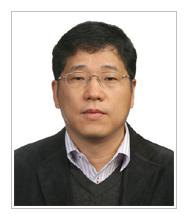 Professor Jie-Oh Lee of the Department of Chemistry of KAIST
Professor Jie-Oh Lee of the Department of Chemistry of KAIST was selected as the "KAIST Man of the Year."
Lee was cited for his successful identifying of the three-dimensional structure of protein that causes sepsis. His research is expected to contribute greatly to the development of medicines for immune system treatment.
The prize was given by KAIST President Suh Nam Pyo at the New Year"s ceremony on Jan. 2, 2008 at the KAIST auditorium.
Professor Lee published a series of research papers in Science, one of the world"s most prestigious scientific journals. Most recently, Lee was awarded the "Scientist of the Year" prize by the Korean Science Reporters Association.
2008.01.02 View 15233
Professor Jie-Oh Lee of the Department of Chemistry of KAIST
Professor Jie-Oh Lee of the Department of Chemistry of KAIST was selected as the "KAIST Man of the Year."
Lee was cited for his successful identifying of the three-dimensional structure of protein that causes sepsis. His research is expected to contribute greatly to the development of medicines for immune system treatment.
The prize was given by KAIST President Suh Nam Pyo at the New Year"s ceremony on Jan. 2, 2008 at the KAIST auditorium.
Professor Lee published a series of research papers in Science, one of the world"s most prestigious scientific journals. Most recently, Lee was awarded the "Scientist of the Year" prize by the Korean Science Reporters Association.
2008.01.02 View 15233 -
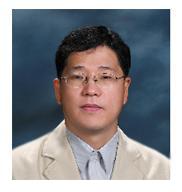 Professor Jie-Oh Lee awarded 'Scientist of the Year'
Professor Jie-Oh Lee of the Department of Chemistry was awarded the ‘Scientist of the Year’ prize for identifying the three-dimensional structure of protein that causes sepsis, and it was announced by the Korean Science Reporters Association (KOSRA) on November 26th.“Humans have about 30,000 different kinds of proteins, and they all have different structures, just like our faces,” said Professor Lee. “It is extremely helpful to know the three-dimensional shape of proteins when you are trying to understand what their functions in an organism are and trying to develop medicine for them.”
When looking for the three-dimensional structure, protein must first be crystallized and radiated with x-ray, so that reflected x-ray can be interpreted. The three-dimensional structure of sepsis immunity proteins TLR1-TLR2 and TLR4-MD2 could not be found until now because they would not even crystallize.
“I began to doubt if it was even possible to crystallize them because we went through so many failures,” reflected Professor Lee.
In August of last year, after about three years of research, the team finally came up with a new idea. The team decided to ‘stick’ the sepsis immunity protein to protein that easily crystallizes. If the combined structure of sepsis immunity protein and the known protein could be identified, the structure of sepsis immunity protein would be a combined structure subtracted by the known structure.
The three-dimensional structure was obtained with x-ray radiation from combined protein crystal. The combined protein was derived from an insect cell with altered DNA.
“This method seems very simple but no one ever tried it or no one ever succeeded in it,” said Professor Lee.
The result was a horseshoe shaped protein structure. The research team also expects the new protein-combining technology to contribute to the development of a new immune system treatment medicine.
The prize-awarding ceremony was held on November 26th in an event hosted by the Korean Hospital Association.
Also, Professor Ryong Ryoo of the Department of Chemistry was selected as the National Scientist last month.By KAIST Herald on November, 2007
2007.12.21 View 14677
Professor Jie-Oh Lee awarded 'Scientist of the Year'
Professor Jie-Oh Lee of the Department of Chemistry was awarded the ‘Scientist of the Year’ prize for identifying the three-dimensional structure of protein that causes sepsis, and it was announced by the Korean Science Reporters Association (KOSRA) on November 26th.“Humans have about 30,000 different kinds of proteins, and they all have different structures, just like our faces,” said Professor Lee. “It is extremely helpful to know the three-dimensional shape of proteins when you are trying to understand what their functions in an organism are and trying to develop medicine for them.”
When looking for the three-dimensional structure, protein must first be crystallized and radiated with x-ray, so that reflected x-ray can be interpreted. The three-dimensional structure of sepsis immunity proteins TLR1-TLR2 and TLR4-MD2 could not be found until now because they would not even crystallize.
“I began to doubt if it was even possible to crystallize them because we went through so many failures,” reflected Professor Lee.
In August of last year, after about three years of research, the team finally came up with a new idea. The team decided to ‘stick’ the sepsis immunity protein to protein that easily crystallizes. If the combined structure of sepsis immunity protein and the known protein could be identified, the structure of sepsis immunity protein would be a combined structure subtracted by the known structure.
The three-dimensional structure was obtained with x-ray radiation from combined protein crystal. The combined protein was derived from an insect cell with altered DNA.
“This method seems very simple but no one ever tried it or no one ever succeeded in it,” said Professor Lee.
The result was a horseshoe shaped protein structure. The research team also expects the new protein-combining technology to contribute to the development of a new immune system treatment medicine.
The prize-awarding ceremony was held on November 26th in an event hosted by the Korean Hospital Association.
Also, Professor Ryong Ryoo of the Department of Chemistry was selected as the National Scientist last month.By KAIST Herald on November, 2007
2007.12.21 View 14677 -
 Three Professors Selected as IEEE Fellows
Three Korea Advanced Institute of Science and Technology (KAIST)’s professors, Ju-Jang Lee, Yong-Hee Lee, and Hoi-Jun Yoo, were selected as a part of the 2008 Institute of Electrical and Electronics Engineers, Inc (IEEE)’s “Fellows.” A Fellow is the highest level of membership given only to those “with an extraordinary record of accomplishments” in their field of study. Although some IEEE memberships can be gained freely by all, the Fellow status is bestowed only by the IEEE Board of Directors.
Professor Ju-Jang Lee was awarded the Fellow status “for contributions to intelligent robust control and robotics.” Robust control is a system’s stable maintenance under many inputs in a dynamic environment. A part of KAIST’s Electrical Engineering Department, Professor Ju-Jang Lee has conducted successful research in these fields, and has published 538 papers. He also holds many patents in and outside of the country, and is the General Chair for two upcoming IEEE conferences in 2008 and 2009.
Professor Yong-Hee Lee of KAIST’s Physics Department was recognized for his “contributions to photonic devices based upon vertical cavity surface emitting lasers and photonic crystals.” Photonic devices are those that allow the practical use of photons, and photon crystals are structures that affect the motion of photons. Professor Yong-Hee Lee is an expert in the field of Photonics and his works have been cited over 2500 times. He is also an outstanding speaker, giving over 30 lectures in front of international audiences in the past 5 years, and receiving The Distinguished Lecturer’s Award from IEEE.
Professor Hoi-Jun Yoo was granted the prestigious Fellow status for his “contributions to low-power and high-speed VLSI design.” VLSI stands for ‘very large scale integration’ and refers to the skill for packing a huge number of semiconductors on an integrated circuit. Professor Lee’s Fellow status is noteworthy in that he studied, worked, and researched solely in Korea. He is also the youngest of the three KAIST professors to be granted membership in the class of 2008 Fellowship. IEEE also recognized Professor Yoo as the most frequent publisher during the past 8 years.
IEEE, originally concentrating on Electric Engineering, has now branched into many related fields. It is a nonprofit organization, and its aim is to be the world"s leading professional association for the advancement of technology. For its Fellow Class of 2008, 295 members were chosen; which is less that 0.1% of their total members.By KAIST Herald on December, 2007
2007.12.21 View 20550
Three Professors Selected as IEEE Fellows
Three Korea Advanced Institute of Science and Technology (KAIST)’s professors, Ju-Jang Lee, Yong-Hee Lee, and Hoi-Jun Yoo, were selected as a part of the 2008 Institute of Electrical and Electronics Engineers, Inc (IEEE)’s “Fellows.” A Fellow is the highest level of membership given only to those “with an extraordinary record of accomplishments” in their field of study. Although some IEEE memberships can be gained freely by all, the Fellow status is bestowed only by the IEEE Board of Directors.
Professor Ju-Jang Lee was awarded the Fellow status “for contributions to intelligent robust control and robotics.” Robust control is a system’s stable maintenance under many inputs in a dynamic environment. A part of KAIST’s Electrical Engineering Department, Professor Ju-Jang Lee has conducted successful research in these fields, and has published 538 papers. He also holds many patents in and outside of the country, and is the General Chair for two upcoming IEEE conferences in 2008 and 2009.
Professor Yong-Hee Lee of KAIST’s Physics Department was recognized for his “contributions to photonic devices based upon vertical cavity surface emitting lasers and photonic crystals.” Photonic devices are those that allow the practical use of photons, and photon crystals are structures that affect the motion of photons. Professor Yong-Hee Lee is an expert in the field of Photonics and his works have been cited over 2500 times. He is also an outstanding speaker, giving over 30 lectures in front of international audiences in the past 5 years, and receiving The Distinguished Lecturer’s Award from IEEE.
Professor Hoi-Jun Yoo was granted the prestigious Fellow status for his “contributions to low-power and high-speed VLSI design.” VLSI stands for ‘very large scale integration’ and refers to the skill for packing a huge number of semiconductors on an integrated circuit. Professor Lee’s Fellow status is noteworthy in that he studied, worked, and researched solely in Korea. He is also the youngest of the three KAIST professors to be granted membership in the class of 2008 Fellowship. IEEE also recognized Professor Yoo as the most frequent publisher during the past 8 years.
IEEE, originally concentrating on Electric Engineering, has now branched into many related fields. It is a nonprofit organization, and its aim is to be the world"s leading professional association for the advancement of technology. For its Fellow Class of 2008, 295 members were chosen; which is less that 0.1% of their total members.By KAIST Herald on December, 2007
2007.12.21 View 20550